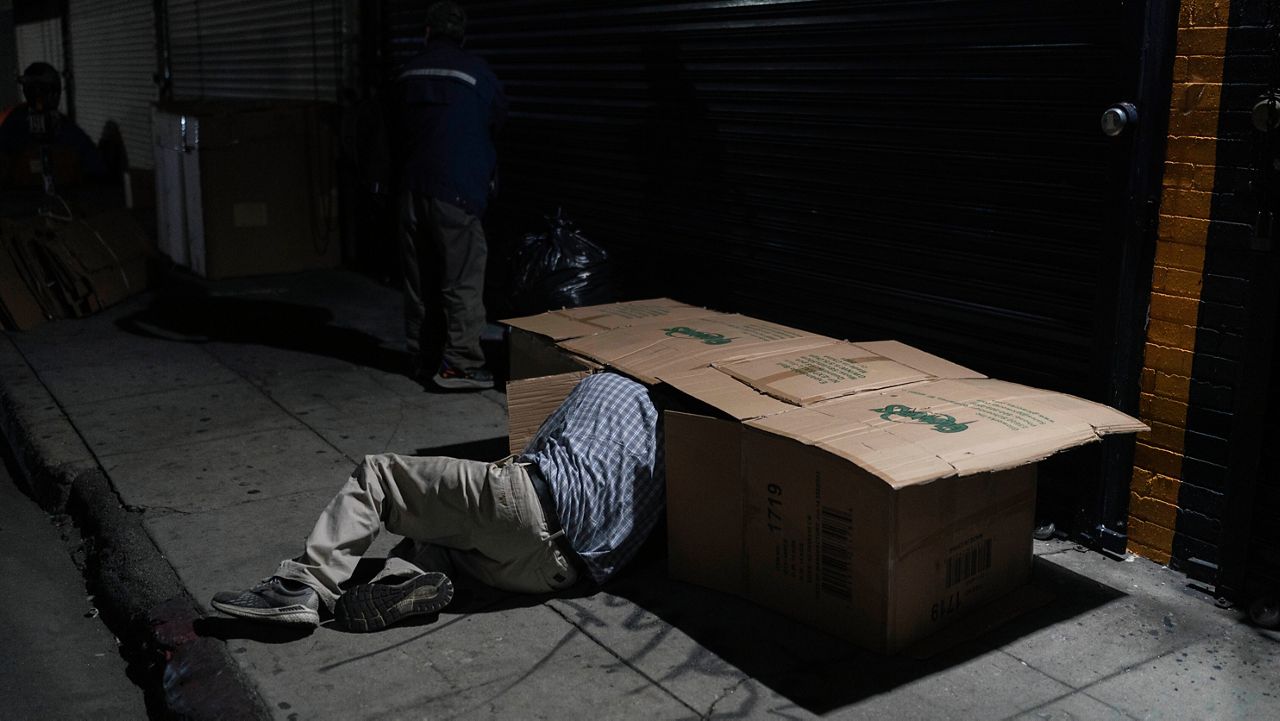The Biden-Harris administration on Monday released its ambitious plan to curb homelessness in the United States by 25% by 2025.
The plan, dubbed "All In: The Federal Strategic Plan to Prevent and End Homelessness," will "recommit" to evidence-based strategies like the Housing First model, which seeks to provide individuals experiencing homelessness housing assistance before addressing their other needs like substance abuse and mental health.
"Every American deserves a safe and reliable place to call home," President Joe Biden wrote in a letter accompanying the plan. "It’s a matter of security, stability, and well-being."
"It is also a matter of basic dignity and who we are as a Nation," Biden added. "Yet many Americans live each day without safe or stable housing. Some are in emergency shelters. Others live on our streets, exposed to the threats of violence, adverse weather, disease, and so many other dangers exacerbated by homelessness."
The strategy released Monday was shaped by people who have experienced homelessness, officials said. The administration declared that it is an effort to "dismantle systems that create disparities."
The Biden-Harris plan "will do more than any previous federal effort to systemically prevent homelessness and combat the systemic racism that has created racial and ethnic disparities in homelessness," according to a statement from the Department of Health and Human Services.
To accomplish the task, the administration wants to "Lead with Equity" by creating a means to "publicly report federal actions taken by USICH and its member agencies to advance equity and support local and state efforts to address disparities."
According to HUD, on a single night in 2020, roughly 580,000 people experienced homelessness in the United States. Between 2019 and 2020, the number of people experiencing homelessness increased by 2%, the agency said.
The U.S. Interagency Council on Homelessness says that while homelessness is deadly, it is also preventable. The plan states that closing the door to homelessness involves "preventing homelessness before it starts."
“Everyone deserves a safe and stable place to call home. After years of steep rises in homelessness and amid historic challenges that included a global pandemic, the data show that we can make progress even under the most difficult circumstances,” Marcia Fudge, secretary of Housing and Urban Development, said in a statement.
The housing secretary added while the administration has "a long way to go with systems to fix," the "All In" program is an "action plan to speed up the progress.”
The plan said that communities of color are "often overrepresented in the criminal justice system and child welfare system" adding: "Failure to address the pipeline from these publicly funded institutions into homelessness will further racial disparities among those experiencing homelessness."
Veteran Affairs Secretary Denis McDonough said: “Together, we’ve driven down veteran homelessness by 55% since 2010, showing that we know how to tackle this issue if we all work together."
"The Plan offers sound strategies and a welcome focus on evidence and racial equity, but it doesn’t promise the kind of resources that succeeded in cutting homelessness among military veterans in half," Beth Shinn, professor in the department of Human and Organizational Development at Vanderbilt University, told Spectrum News.
Shinn, who authored “In the Midst of Plenty: Homelessness and What to Do About It,” says the plans discuss the "shortage of affordable and available homes for low-income renters" but argues that until housing is made "less expensive or raising incomes for folks at the bottom of the economic ladder, we will continue to generate homelessness faster than we can solve it."
"Congress needs to cooperate in making that level of resources available for other groups," Shinn said.
The U.S. Interagency Council on Homelessness will begin hosting webinars in Jan. 2023 to begin the effort to help localities implement "plans to prevent and end homelessness."



